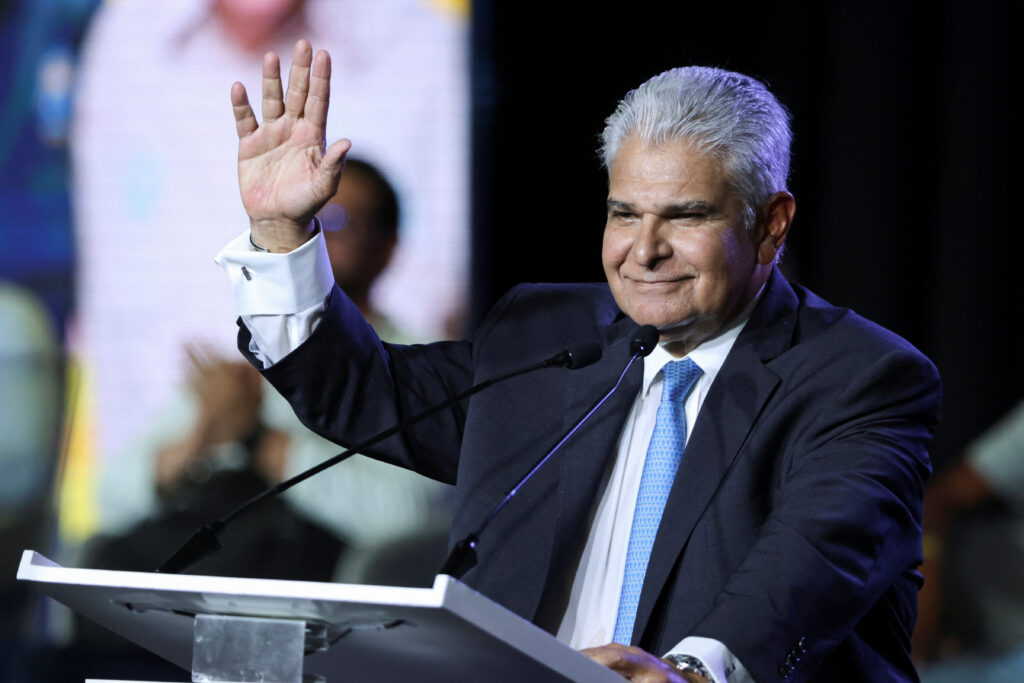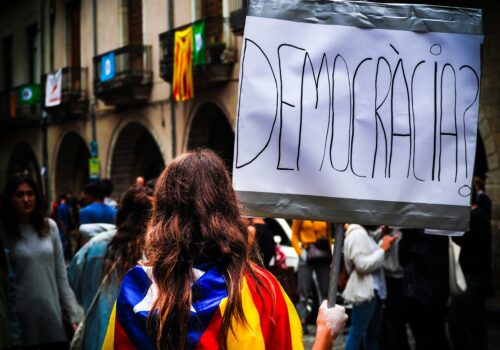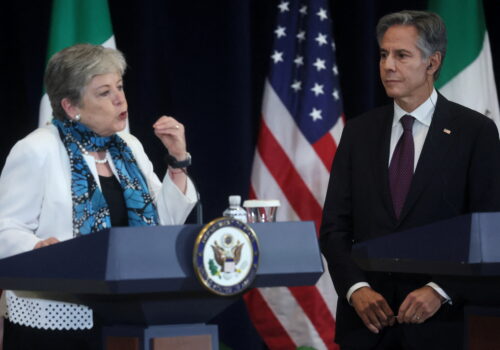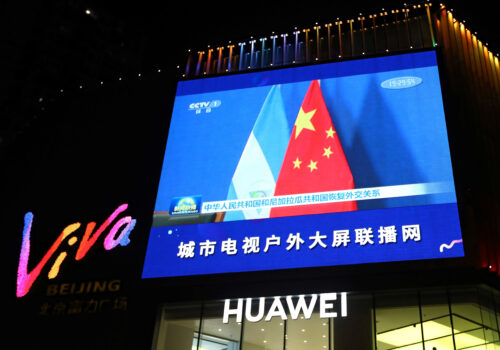On May 5, Panamanians elected José Raúl Mulino to be their next president. Mulino, who was nominated by Partido Realizando Metas and Partido Alianza, is a lawyer and previously served as minister of security and minister of foreign affairs. On the campaign trail, he vowed to put more money in Panamanians’ pockets and build large infrastructure projects, including a train between Panama City and David, the capital of the country’s agricultural powerhouse province of Chiriquí. He also promised to close the Panama-Colombia land border and “help” former Panamanian President Ricardo Martinelli, Mulino’s political mentor who was sentenced to ten years in prison for money laundering and is currently living in the Nicaraguan embassy in Panama as a political asylee. Panama’s border with Colombia and the fate of Martinelli, whom the Panamanian government denied permission to leave the country, both received a lot of scrutiny in the run-up to the election, but the incoming administration will now need to focus on a broader range of issues.
Mulino was elected with 34 percent of the vote in a single-round election featuring eight presidential candidates. Emerging with a narrow victory and having secured only fifteen out of seventy-one seats in the National Assembly between Realizando Metas and Partido Alianza combined, Mulino’s first order of business must be to unite a country that seems unlikely to give its new president a honeymoon period. However, to reach a working majority in this highly fragmented National Assembly, the new administration will need to broaden its outreach without falling prey to the vices of the past, namely coalition-building through patronage and corrupt dealings. The new government’s success hinges upon the president-elect’s ability to build national consensus quickly.
To do so, Mulino should start with the economy.
Building inclusive economic opportunity
Panama’s economic story is defined by an unusually fast but lopsided rise to become the wealthiest country in Latin America in gross domestic product (GDP) per capita terms, propelled by economic growth at an unparalleled rate in the region. Panama’s GDP per capita is comparable to those of Greece and Croatia, but that average hides a great deal of imbalance within the country. The GDP per capita of the two provinces adjacent to the Panama Canal is roughly ten times higher than that of the Darién province that borders Colombia. Darién’s GDP per capita is similar to that of Haiti, the poorest country in the Western Hemisphere. In the two most populous indigenous communities, more than 90 percent of the population lives in multidimensional poverty—that is, a lack of sufficient income, education, healthcare, and access to infrastructure.
Panamanians held mass protests as recently as July-August 2022 and October-November 2023—the largest that the country had seen in decades—and the incoming administration will face continued pressure to transform the country’s economy to ensure lasting and inclusive growth. Mulino’s administration will need to address disparities and structural impediments, including territorial inequalities, gaps in access to and quality of public goods and services (water, electricity, sanitation, education, healthcare, transportation, and technology), and pension system reform. However, the delicate state of Panama’s finances will require remarkable policy ingenuity to invest smartly. The incoming administration must deploy carefully calibrated policies, such as special economic zones, to develop strategic industries beyond the Panama Canal region. It must also leverage Panama’s carbon-negative status to create room in the government budget through climate finance tools.
To fully address these inequalities, however, the incoming administration will also need to reform Panama’s institutions.
Strengthening and modernizing institutions
In the past decade, discussions about strengthening Panamanian institutions have typically focused on optimizing for transparency and efficiency, and with good reason. Each year for over a decade, corruption is estimated to have cost Panama the equivalent of 1 percent of its GDP. In addition, Panama’s large bureaucracy—accounting for 17 percent of its overall workforce, the second-largest share of public sector employees in Latin America—has not translated into robust state capacity to deliver public goods and services and collect tax revenues commensurate with Panama’s level of income. This inefficiency is connected to the practice of clientelism, whereby the Panamanian bureaucracy has been co-opted by the distribution of privileges (including jobs, discretionary budgets, scholarships, and goods) in exchange for political support. In addition to longstanding concerns about efficiency and transparency, the uncertainties, institutional frailties, and gaps in existing legislation exposed in the 2024 election cycle call for an additional focus on democratic stability.
The next administration and the National Assembly will have multiple tools at their disposal to address these challenges. To mitigate clientelism, Panama should adopt a two-pronged approach. First, the Panamanian government will need to improve access to and the quality of public services and infrastructure, thus meeting citizens’ needs and addressing the root causes of problems. Too often, politicians have sought self-interested “quick fixes” to problems that do not address underlying causes. Second, Panama should implement legislation to build a professional civil service where hiring and firing are based on merit rather than party loyalty. Talented civil servants should encounter job security and strong incentives to work in the bureaucracy long term, and their performance should be measured and reviewed periodically.
During the campaign, various candidates including Mulino promised to carry out constitutional reforms, which could be leveraged to strengthen checks and balances and improve representation in Panama’s electoral system. The National Assembly can also contribute to bolstering government accountability by appointing a comptroller general who is independent from the governing party.
Reaffirming Panama’s position in global supply chains
Panama’s location is one of its most valuable assets, shaping the country’s role as a global trade and logistics hub and enabling the development of its international services platform. Each year, 5 percent of global maritime trade and 14 percent of maritime trade into and out of the United States crosses the Panama Canal. In a typical year, thirty-seven ships go through the Panama Canal every day, requiring roughly two billion gallons of fresh water, mostly drawn from nearby lakes. To put that in perspective, that is twice as much as New York City’s daily water demand. In 2023, Panama faced one of the three driest years in over a century, primarily as a result of El Niño, prompting the Panama Canal Authority to implement temporary transit restrictions.
To understand how the canal might approach climate-proofing its operations to ensure normal transit levels even in extraordinarily dry years, it is crucial to understand how it works. The Panama Canal is a state-owned enterprise (SOE) with a robust institutional framework—including a section of the Panamanian constitution—that has protected the canal from the mismanagement concerns typically associated with SOEs. The fact that this has remained the case in an otherwise weak institutional context is both surprising and essential to the way that the Panama Canal has become efficient, profitable, and pivotal to unlocking development around it.
However, it also means that there are things that the Panama Canal Authority cannot do without government approval, including modifying the limits of its watershed and building a new reservoir. In 2023, the Panama Canal’s Board of Directors presented a proposal encompassing those two requests to the government as part of its strategy to safeguard the canal’s operations as droughts are expected to become more frequent and intense. Now, the ball is the Panamanian government’s court to determine which of the options presented by the Canal Authority it is willing to authorize.
Besides evaluating the best pathways to climate-proof the canal, the Mulino administration should seek to strengthen Panama’s logistics platform beyond the canal. Improvements in port management and road connectivity present remarkable opportunities that Panama has yet to capitalize on.
By implementing these changes, the Mulino administration will be able to place Panama on a path of inclusive and sustainable development that is enabled rather than hindered by the quality of its institutions.
Felipe Félix Méndez is an assistant director at the Atlantic Council’s Adrienne Arsht Latin America Center and is originally from Panama.
Further reading
Tue, Mar 5, 2024
The future of democracy in the Americas
Report By
The Democracy and Governance commitment at the Ninth Summit of the Americas marked an imperative platform for strengthening the region’s democratic values and institutions.
Mon, Feb 26, 2024
Redefining US strategy with Latin America and the Caribbean for a new era
Report By Jason Marczak, María Fernanda Bozmoski, Matthew Kroenig
The strategic interest of the United States and the countries of Latin America and Caribbean (LAC) lies in strengthening their western hemisphere partnership. However, the perception of waning US interest and the rise of external influences necessitate the rejuvenation of and renewed focus on this partnership.
Mon, Feb 12, 2024
A strategy to counter malign Chinese and Russian influence in Latin America and the Caribbean
Atlantic Council Strategy Paper Series By Matthew Kroenig, Jason Marczak, Jeffrey Cimmino
As strategic competition with China and Russia continues to intensify, the United States and its allies need a strategy for countering the malign influence of authoritarian rivals in the Western Hemisphere. This Atlantic Council Strategy Paper proposes a path forward for the United States and its allies to do that.
Image: Presidential candidate Jose Raul Mulino of the Realizando Metas party reacts during a closing campaign rally ahead of the May 5 general election, in Panama City, Panama. April 28, 2024. REUTERS/Aris Martinez



